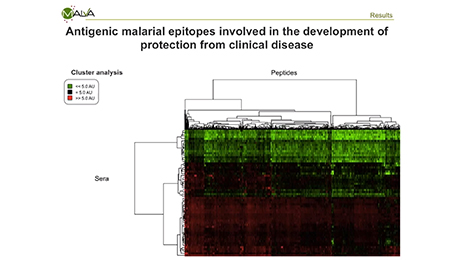Webinars and Videos
Browse our video library for tutorials and webinars on demand.
Presented by: Dr. Kirsten Heiss - MalVa GmbH
Date: April 15, 2015
An efficacious and practicable vaccine conferring sterile immunity towards a Plasmodium infection is still not available. A crucial factor for the impact of a given anti-plasmodial subunit vaccine is the identification of the most potent parasitic components required to induce protection from both infection and disease. High-density peptide arrays can be used to identify novel immunogenic antibody epitopes under a large number of potential antigens/peptides. Ultimately, discovered antigen candidates and/or epitope sequences can be translated into vaccine prototype design.
About the Presenter
Dr. Kirsten Heiss graduated from Ruprecht-Karls University Heidelberg in 2006. She did her Ph.D. in infectious diseases working on the malaria-causing agent Plasmodium. Further Postdoc studies at the Institute of Immunology at University Hospital Hamburg-Eppendorf enabled her to acquire profound knowledge in infection-immunological questions and immunological methodologies. In 2009, the development of a novel next-generation malarial subunit vaccine started at the University Hospital Heidelberg. Since May 2011, Dr. Kirsten Heiss is managing director of MalVa GmbH, supported by MalVa’s advisors and scientific team.


